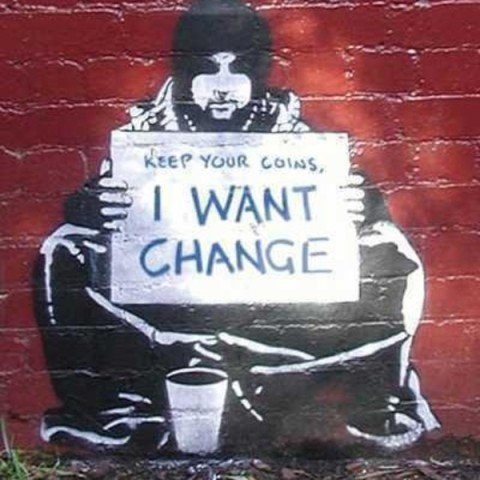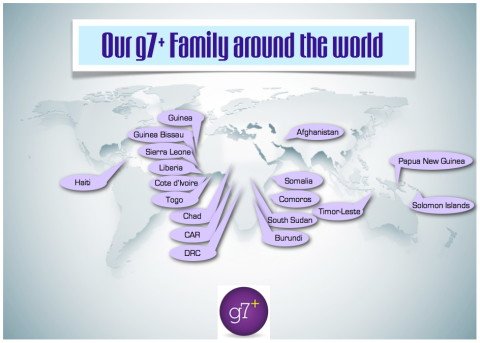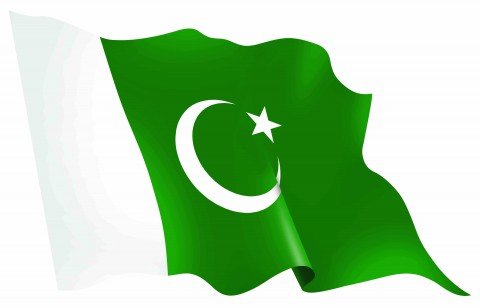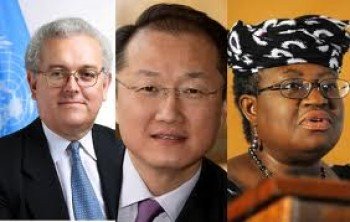by Seth Kaplan | Oct 4, 2013 | Cooperation and coherence, Economics and development, Global Dashboard
 A number of noteworthy reports on institutional change, development, and foreign aid have been published recently. There is much agreement between them, suggesting that we have reached a tipping point in knowledge in this area. I will briefly summarize the results here and provide links for those who want to explore the subject further. (more…)
A number of noteworthy reports on institutional change, development, and foreign aid have been published recently. There is much agreement between them, suggesting that we have reached a tipping point in knowledge in this area. I will briefly summarize the results here and provide links for those who want to explore the subject further. (more…)
by Seth Kaplan | Jun 27, 2013 | Conflict and security, Economics and development
 The g7+ group of 18 fragile and conflict-affected states has joined together to share experiences and promote a new development framework in what are the most difficult of circumstances. Supported by the International Dialogue on Peacebuilding and Statebuilding, the group achieved a major breakthrough at the Busan High Level Forum on Aid Effectiveness in November 2011—an agreement on a New Deal for Engagement in Fragile States. A major part of this is a new orientation to the relationship with donors.
The g7+ group of 18 fragile and conflict-affected states has joined together to share experiences and promote a new development framework in what are the most difficult of circumstances. Supported by the International Dialogue on Peacebuilding and Statebuilding, the group achieved a major breakthrough at the Busan High Level Forum on Aid Effectiveness in November 2011—an agreement on a New Deal for Engagement in Fragile States. A major part of this is a new orientation to the relationship with donors.
The New Deal priorities what fragile states themselves think are the most important issues to building peaceful and prosperous societies by identifying five Peacebuilding and Statebuilding Goals (PSGs):
- Legitimate politics – Foster inclusive political settlements and conflict resolution
- Security – Establish and strengthen people’s security
- Justice – Address injustices and increase people’s access to justice
- Economic foundations – Generate employment and improve livelihoods
- Revenues and services – Manage revenue and build capacity for accountable and fair service delivery
These are meant to frame a country-led, inclusive way of setting national goals and establishing a national development plan. This, in turn, is meant to increase country-donor harmonization and donor co-ordination. (more…)
by Seth Kaplan | Sep 5, 2012 | Economics and development, South Asia
 Like many struggling countries, Pakistan’s two most critical problems are feckless leaders and a feeble state. Can donors do anything to help get such countries’ political economy moving in the right direction?
Like many struggling countries, Pakistan’s two most critical problems are feckless leaders and a feeble state. Can donors do anything to help get such countries’ political economy moving in the right direction?
I recently convened a working group of leading Pakistani development professionals and outside experts at the Global Economic Symposium (GES) to discuss just such this question. (more…)
by Seth Kaplan | May 31, 2012 | Economics and development
Adrian Leftwich gives a great description of what it means to work politically in the development field in a recent publication Politics, Leadership, and Coalitions in Development for the Developmental Leadership Program:
There is understandable caution and reserve about the idea of ‘working politically’, or for donors trying to address ‘the political dimensions of development’ – and for good reason. The phrase itself is easily misinterpreted as insensitive interference, as an invasion of sovereignty and a disregard for principles of ownership and endogenously driven developmental processes. It may sound like ‘regime change’. Given those many cases of bullying or intervention by conditionality of the international community in developing countries, there is good reason for such caution, as the very idea of working politically might seem to suggest a flagrant violation of the principles of Accra and Paris. (more…)
by Seth Kaplan | Apr 12, 2012 | Economics and development

As the competition for president of the World Bank approaches its final stages, it is worth considering what changes ought to be brought in by the new person. One area in need of reform is the Bank’s system of country classifications. Although Robert Zoellick pushed the World Bank to open its much-prized treasure chest of data to the public during his five-year term as president, he did little to reform how the World Bank conceptualized that data. Changing how countries are classified would have a wide impact on the whole development community.
For instance, look at all the discussion in development policy circles about the sharp reduction in the number of low-income countries in recent years. Some believe this news should be trumpeted as a policy success. For others, the reduction suggests that there is a “New Bottom Billion” of poor people living in middle-income countries, forcing a change in donor focus. For yet another group, it indicates that foreign aid as a concept should be updated to blend more loans with grant money.
But has all that much changed? Does the World Bank country classifications accurately identify the countries in need of outside assistance? (more…)
 A number of noteworthy reports on institutional change, development, and foreign aid have been published recently. There is much agreement between them, suggesting that we have reached a tipping point in knowledge in this area. I will briefly summarize the results here and provide links for those who want to explore the subject further. (more…)
A number of noteworthy reports on institutional change, development, and foreign aid have been published recently. There is much agreement between them, suggesting that we have reached a tipping point in knowledge in this area. I will briefly summarize the results here and provide links for those who want to explore the subject further. (more…)


